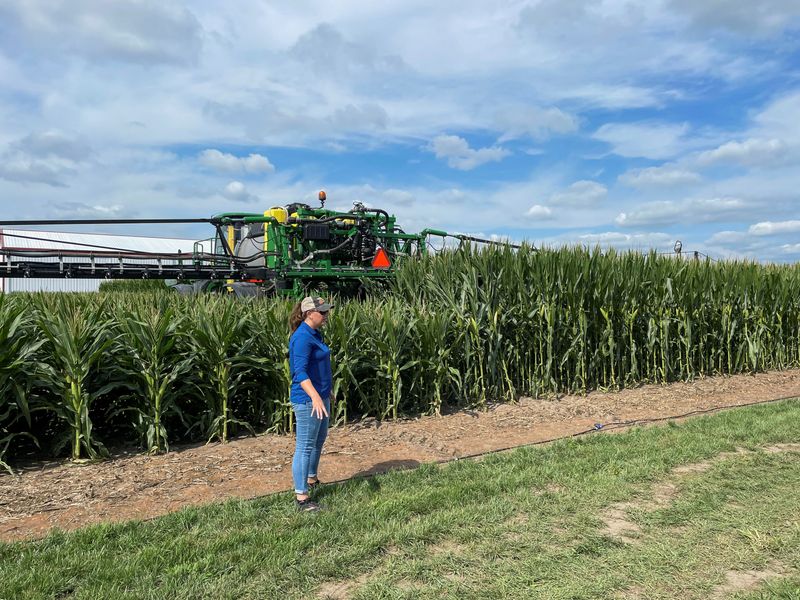By Renee Hickman
CHICAGO (Reuters) – Bayer (OTC:)’s Preceon variety of short stature corn has been shown to withstand up to 75 mph winds (120 kph) in some trials, the company said on Tuesday, but could not withstand winds over 100 mph.
That means the corn could still be damaged by extreme weather such as the derecho storm that hit the heart of the Corn Belt in August 2020, causing $11 billion of damage, according to National Oceanic and Atmospheric Administration. Bayer said other short stature corn survives winds up to 50 mph.
A derecho is a type of large, long-lived thunderstorm carrying damaging straight line winds. Scientists say extreme weather events are becoming more common due to global warming.
“After 100 mph, nothing really stands,” Bob Reiter, head of research and development, crop science, at Bayer, told Reuters.
At an event in Chicago, the company said 390 farmers grew the Preceon variety on around 35,000 acres in the U.S. and Europe in a 2023 trial of the conventionally bred version of the corn.
Bayer intends to make a genetically modified version of the corn available in 2027 and is at work on a gene-edited version “to appeal to various global markets.” Bayer says the corn will reduce yield losses due to extreme weather because it has less height to catch wind.

Events such as the derecho storm that hit the U.S. Midwest could become a bigger problem as warmer temperatures associated with climate change escalate, according to Nick Vita, a forecaster with Commodity Weather Group.
“Very warm temperatures can not only help with the intensity but also the duration of these systems,” Vita said.

